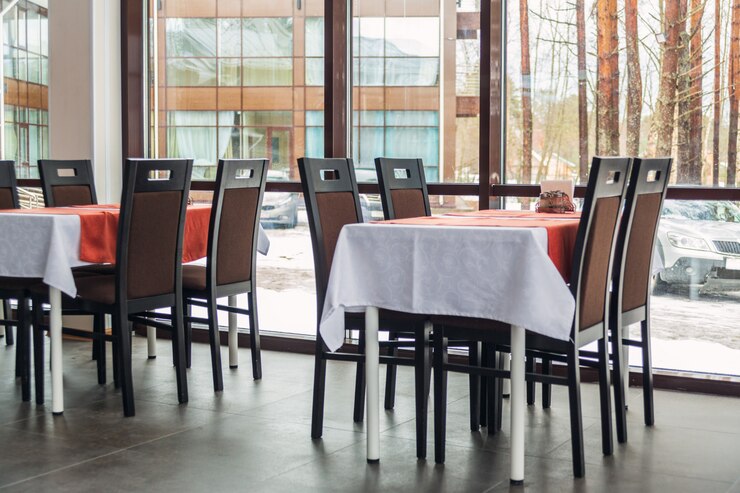In recent years, the restaurant industry has shifted profoundly towards sustainability, driven by consumer demand for eco-friendly practices and the imperative to reduce environmental impact. Central to this transformation is the choice of materials used in restaurant furniture, particularly tables. These essential elements not only define the aesthetic character of dining spaces but also play a crucial role in determining the ecological footprint of establishments. This comprehensive review explores the various facets of environmental sustainability in restaurant tables, from material choices and manufacturing processes to maintenance and longevity.
Material Choice and Sustainability
The materials used for restaurant tables have a significant influence on the environment. Due to their long lifespan and attractive appearance, conventional materials like laminates and hardwoods have historically controlled the market. However, worries about resource depletion and deforestation have led to an increasing desire for sustainable alternatives.
Reclaimed and Recycled Material
Using recycled and repurposed materials is one of the most popular trends in environmentally friendly restaurant tables. Reclaimed wood, which comes from abandoned furniture, barns, and other structures, has a certain rustic beauty and helps keep waste out of landfills while lowering the need for new wood. In addition to being in line with the circular economy’s tenets, this trend appeals to customers becoming more aware of how their decisions affect the environment.
Recycled materials are also becoming increasingly common. Composite boards, for example, are created from recycled plastic and wood fibers. These materials are similar to conventional hardwoods in terms of performance and durability, and they also lessen the amount of trash that ends up in landfills. Technological developments in manufacturing have made it possible to create premium recycled materials that satisfy the exacting requirements of restaurant settings.
Sustainable Wood and Bamboo
Bamboo and certified sustainable wood comprise an additional class of ecologically acceptable tabletop products. Bamboo has become a popular material due to its strength, lightweight, and aesthetic adaptability. It is also noted for its quick growth and renewability. Sustainable forestry methods guarantee the ethical harvesting of these resources, reducing deforestation and protecting natural ecosystems.
The Forest Stewardship Council (FSC) certification guarantees that wood products come from properly managed forests and meet stringent environmental and social requirements. Restaurants that use tables with FSC certification help conserve biodiversity and assist nearby people who rely on forest resources.
Eco-Friendly Resins and Composites
Novel materials such as bio-based composites and bio-resins from natural plant sources present a possible substitute for traditional tabletop materials. Compared to materials made from petroleum, these materials have a lower carbon footprint, biodegradability, and minimal environmental impact. UtilizingUsing sustainable materials like soybean oil or corn starch, producers create tables that are visually pleasing, long-lasting, and environmentally responsible.
Read Also: Budget-Friendly Event Planning Tips
Longevity and Maintenance Consideration
The durability and upkeep needs of restaurant tables are essential to their overall viability. Durable materials that resist repeated use and need little maintenance help products last longer and have less environmental effect throughout their lives. Good maintenance techniques, such as routine cleaning and surface treatments, reduce the need for premature replacement while maintaining tabletop functioning and aesthetics.
Consumer Perception and Market Trends
Consumer preferences and awareness heavily influence the restaurant industry’s adoption of sustainable tables. Dining experiences that align with the concepts of social responsibility and environmental stewardship are becoming increasingly critical to environmentally conscious customers. Restaurants that exhibit a dedication to sustainability using transparent sourcing methods and ecologically conscious efforts foster patronage and attract an expanding market segment.



